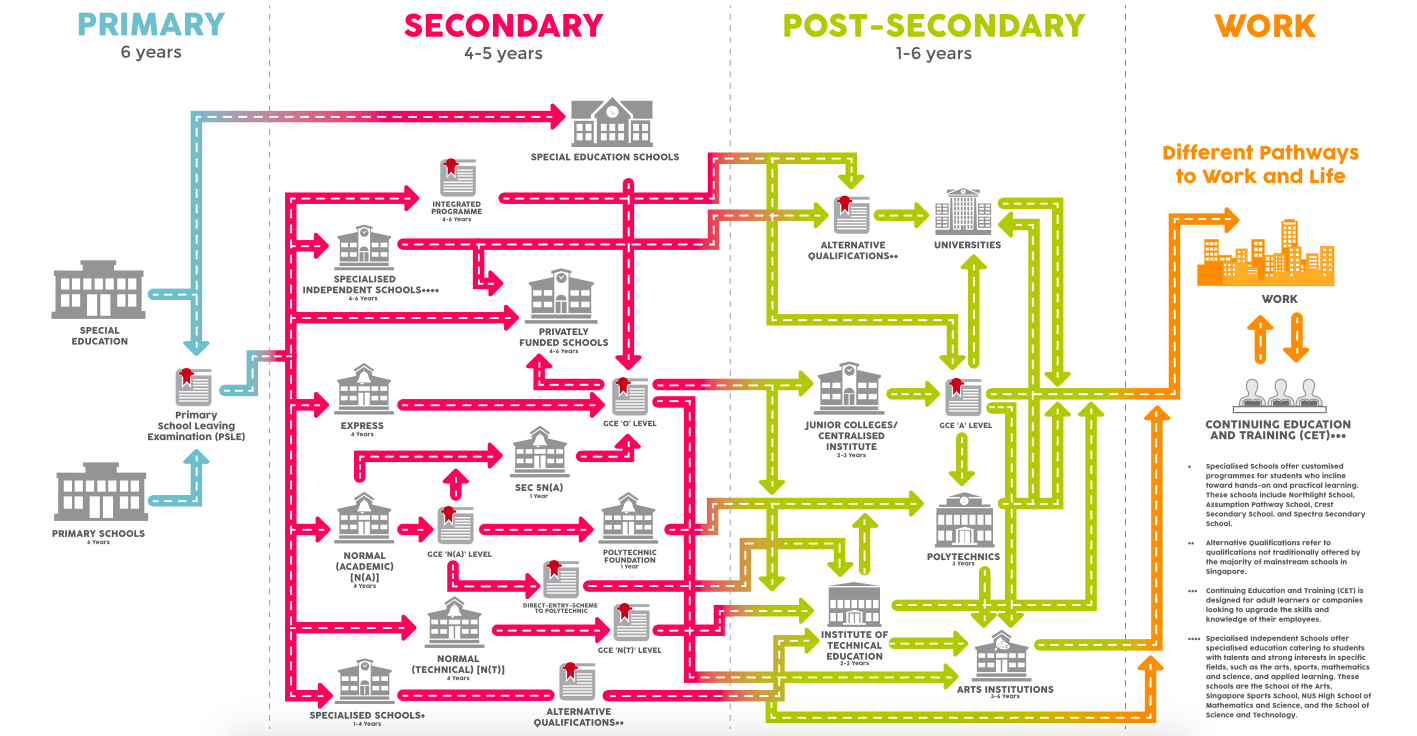In Singapore, the term "O-levels", when mentioned, fills a young person with fear and anxiety — and perhaps even sends shivers down an older person's spine, as the memories of the stress and cramming return.
For the graduating students of 2015, the main subject O-Level paper examinations will begin on Monday, Oct. 19. While they face this potentially life-changing series of examinations, what are their thoughts and worries? Here are five thoughts that are likely going through their minds now, courtesy of one of them:
1. "Have I done enough?"
 Photo: Thinkstock
Photo: Thinkstock
Preparation for these exams begins as early as the year before, and for good reason. With factors such as the nationwide bell curve and the difficulty of the papers to consider, we worry that our preparations, no matter how extensive, are not enough.
The emphasis our country (and the rest of the world for that matter) seems to place on the results of the O-levels are no joke. They determine what opportunities and experiences we will have in our future, they definitely play a part in which institute of higher education we will end up in, and could possibly go as far as to determine career paths.
Add the expectations of parents, teachers, (and I haven't even gotten into the ones we lay onto ourselves) and it is a lot of weight to place on the shoulders of a teenager.
2. "I'm running out of steam!"
 Photo: Thinkstock
Photo: Thinkstock
I speak from personal experience when I say this — it is extremely difficult for a student to study (intensively) continuously over a long period. The total study period for the O-levels comes up to almost a year. A year of constant studying and revision is not an easy feat, and many of us inevitably lose our stamina along the way and get lazy.
What's worse is when we find ourselves unable to regain it as the exams draw near — that's when the panic begins. It's a realistic and common fear, but not an irresolvable one. In the end, it all comes down to willpower, to force yourself to study no matter how exhausted you are. It is the final stretch, after all!
3. "Should I work towards JC or Poly... or something else?"
 Screenshot from MOE website
Screenshot from MOE website
The easiest way to possess this willpower is to have a clear goal in mind, be it a desirable L1R5 score or to meet the cut-off point of a particular school. In this aspect, we'll have to make an early decision about which form of higher education we want to go for.
Should it be Junior College (JC), where students continue to wear uniforms and have structured timetables, just like in secondary school? Of course, we will then also face the A-levels (which, as my editors at Mothership.sg will add, are the O-levels on steroids, so hold on to your hats). Or Polytechnics, where students have to pick a particular course and specialise in it for a good part of three years, earning themselves a diploma at the end of it?
There are even the options of the Institute of Technical Education and the arts institutions (SOTA, for instance), for those of us even more certain about what we want to do.
Going to polytechnic, ITE or an arts school would be a good choice for those of us who are talented and sure of what we want to do with our lives, but what about the rest of us (and I'm sure this group is a big one)? JCs are generally seen as places where students still have time to think about what they want to do, but the stress and workload are daunting.
Sometimes more options mean more headaches for a young and fickle 16 or 17-year-old, but that’s education in Singapore for you. And hey, generations of O-level students before us have gone through this and done just fine, haven't they? We should be able to figure this out.
4. "What's next?"
 Photo: Thinkstock
Photo: Thinkstock
Beyond our direct next step, which would be for most of us JCs, polys, ITE or an arts institution, it's natural to think about what happens next — simply because that even more distant end goal may help in our interim decision-making process.
Yes, our world is the O-levels now, but it's worth realising that our society, while progressing and becoming more globalised, is making a good university education or job increasingly difficult to attain. Our futures are so bright and yet so unsure it's scary to even think about it. The world is changing so quickly these days and it sometimes makes me wonder how equipped we students actually are for the real world.
It's better to realise sooner than later that studies and grades do not count for everything, as important as it is for us to do our best in them while we can.
5. "But... I don't want to say goodbye."
 Photo: Thinkstock
Photo: Thinkstock
Most O-level students will have already had graduation and farewell ceremonies with their schools by now, but it's just as likely that we're finding all kinds of excuses to return to school during our study breaks: for extra classes, consultations, group study sessions perhaps. Yes, our time in this school is over, but I believe deep down, secondary school isn't over until the O-levels is.
The thought of leaving a familiar place and leaving familiar people is a bittersweet one, especially after journeying together through our pivotal years of development. We may be leaving our schools for good, but the memories that we've gathered over our secondary school lives will remain with us forever, and no examinations will take that away from us. Rather than dwell on the past, let's take these precious memories with us and bravely move into our futures.
Good luck to all those taking the O-levels! Run this final lap and run it well.
Top photo from Thinkstock.
If you like what you read, follow us on Facebook and Twitter to get the latest updates.
If you like what you read, follow us on Facebook, Instagram, Twitter and Telegram to get the latest updates.
